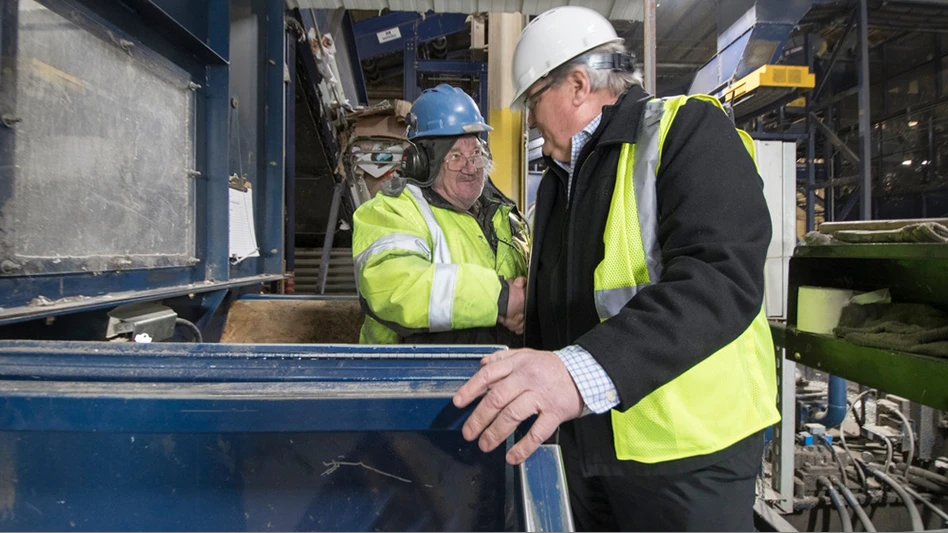
Dreamstime
Oklahoma Gov. Kevin Stitt signed legislation April 19 that provides a modernized regulatory framework for advanced recycling technology in the state. Known as SB 448, the goal of the new law is to reduce plastic waste, enhance operational certainty and increase the adoption of advanced recycling technologies.
The legislation expands existing waste management laws in the state to include an emphasis on plastics recycling.
In a news release, the American Chemistry Council (ACC), Washington, applauds the new legislation.
“Advanced recycling provides a solution to one of our planet’s most pressing environmental challenges: plastic waste in our environment,” says Joshua Baca, ACC vice president of plastics. “These innovative technologies will complement mechanical recycling by allowing us to convert more post-use plastics into new products. Legislation like SB 448 will also help Oklahoma attract new recycling businesses and support job creation.”
Oklahoma is the 11th state to pass advanced recycling legislation since 2017. It joins Florida, Wisconsin, Georgia, Iowa, Tennessee, Texas, Illinois, Ohio, Pennsylvania and Virginia in recognizing that postuse plastics are not waste but a valuable material for manufacturing.
One of the bill’s main supporters is the Environmental Federation of Oklahoma (EFO), a nonprofit organization providing Oklahoma companies a voice in the formation of state and federal environmental policies.
“This bill fits perfectly with our organization’s goal of ensuring that a balance is reached between protecting Oklahoma's natural resources and responsible economic growth,” says EFO President Bud Ground. “Achieving this goal will lead to an enhanced environment and an improved quality of life for the citizens of Oklahoma.”
Officials believe that signing SB 448 into law moves Oklahoma closer to receiving economic and environmental benefits of advanced recycling manufacturing.
For example, converting 25 percent of the recoverable plastics in the state into new products using advanced recycling, also known as chemical recycling, could generate nearly $152 million in estimated economic output annually, the ACC says. Additionally, this law will help create new local demand for recycling programs and recycling centers that will turn postuse plastics currently destined for landfills into valuable new materials, according to the ACC.
SB 448 helps move Oklahoma toward a circular economy, in which products are designed so that their lifecycle leads back to becoming raw material for new products. Advancing a circular economy will help bring about cleaner air and waterways, less pollution and waste and a healthier planet.
“We’re pleased to see support for these technologies continue across the United States. We thank Sen. Zack Taylor and Rep. Brad Boles for sponsoring SB 448 and Gov. Stitt for signing it into law,” Baca says.
Latest from Waste Today
- Techbros launches AI-integrated electronics processing facility
- Understanding interchange optimization
- Account Updater: Keeping customer credit cards always up-to-date
- Understanding credit card fees
- CDRA names new executive director
- CRI credits DRS modifications for Connecticut container recycling rate boost
- LRS expands into Indianapolis with purchase of GHW
- Pelleting equipment: Transform hard-to-handle waste streams





